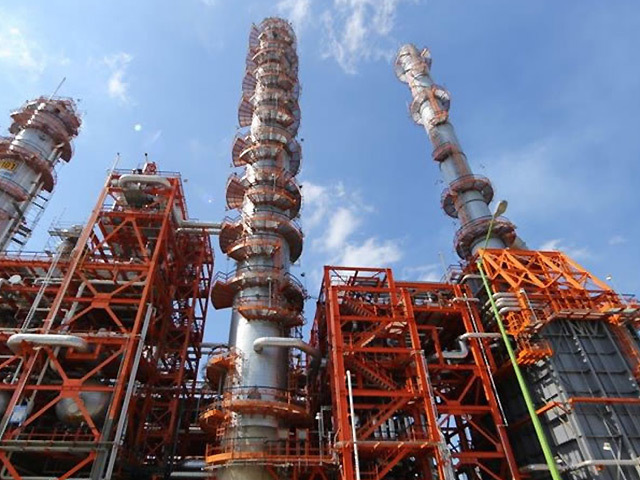
Since Rafael Castilla retired from Mexico’s state oil company 25 years ago, his pension benefits have entitled him to payouts equal to more than half his salary, along with life insurance and free medical care that also covers his wife. All while he worked for other companies.
“I’m grateful for the money and the medical service,” Castilla, 69, said in a telephone interview from his home in the northern city of Monterrey. He said his monthly pension payments amount to 18,000 pesos ($1,353).
The benefits enjoyed by Castilla and thousands of other retirees of Petroleos Mexicanos have swelled the company’s pension liabilities to $127billion, according to the Finance Ministry. They’ve also prompted lawmakers this week to push for scaling back benefits and allowing the government to assume as much as 30 percent of the obligations in a bid to free up cash the companies can use to boost investment.
The move is part of an effort to bolster Pemex as it prepares to compete with foreign oil companies from Chevron Corp. to Exxon Corp. for the first time in 75 years after Mexico ended its monopoly by changing its constitution in December. A reduction of Pemex’s pension liabilities is likely to add a rally in the company’s bonds spurred by the law change, according to Bank of Nova Scotia and Grupo Financiero BBVA Bancomer SA.
The extra yield investors demand to own Pemex’s bonds due in 2035 instead of similar-maturity debt from the Mexican government has narrowed 0.22 percentage point this year to 0.68 percentage point, data compiled by Bloomberg show.
“We were already expecting a reduction in Pemex spreads” due to the energy reform, said Jorge Unda, who oversees some $40billion in assets including Pemex debt as the chief investment officer for Latin America at Bancomer. “Reducing the liabilities of the company puts it in a better position, so it boosts our optimism toward the Pemex spread.”
Joe Kogan, an emerging-market strategist at Bank of Nova Scotia who recommends buying Pemex bonds, said the company’s total pension liabilities may account for 0.25 percentage point of the yield differential between the oil producer and the government.
Lawmakers passed a bill on Aug. 2 to gradually raise the retirement age for Pemex workers from 55 to 65, the same as for other federal employees. They also voted to have pension funds audited. Both measures are contingent on the government assuming some of Pemex’s pension liabilities. The Finance Ministry has also offered to absorb some of the cost of the pensions. The Senate is expected to pass complete energy tax bills as soon as today, Senator David Penchyna said.
“We want to make the companies competitive in the next two years, with a debt-payment scheme supported by the Finance Ministry, because they are state companies that will now compete with other companies in the world,” Senator Jose Isabel Trejo, the head of the lower house Finance Committee, said in a telephone interview.
Mexico’s peso dropped 0.2 percent to 13.3196 per US dollar at 7.06am in New York.
Pemex pensioner Castilla said he retired when he was 44 years old after working for the company as a sales manager since he was 21.
The pension “helps me make ends meet,” he said.
Pemex’s 1.7trillion pesos of pension liabilities account for about 10% of Mexico’s gross domestic product, Finance Minister Luis Videgaray said in a July 28 op-ed published in Milenio, and added that the plan to absorb part of the debt is a “good idea.”
“Pensions from Pemex are a huge issue for long-term investors,” Bank of Nova Scotia’s Kogan said. “It’s always one of the concerns that people have.”
Recommended for you
